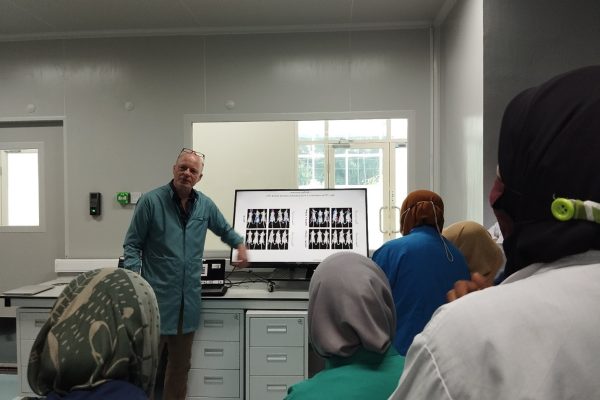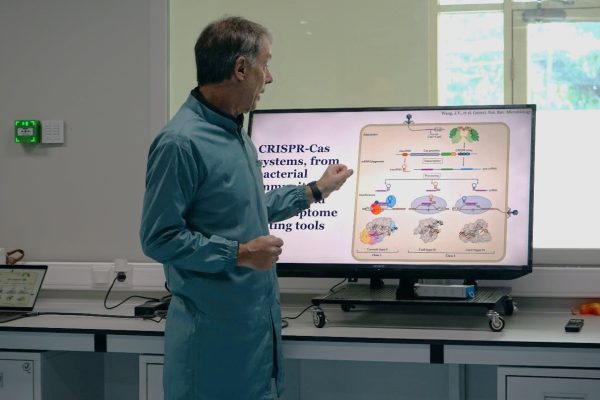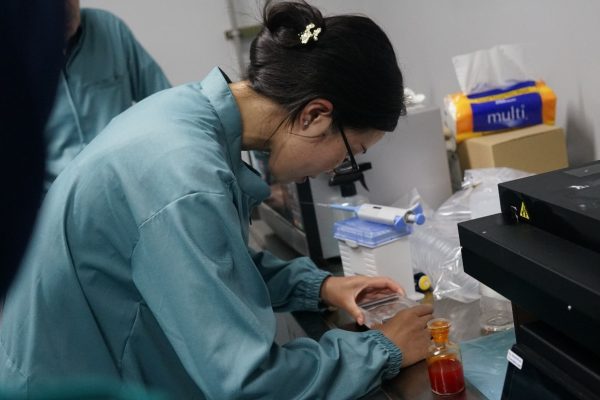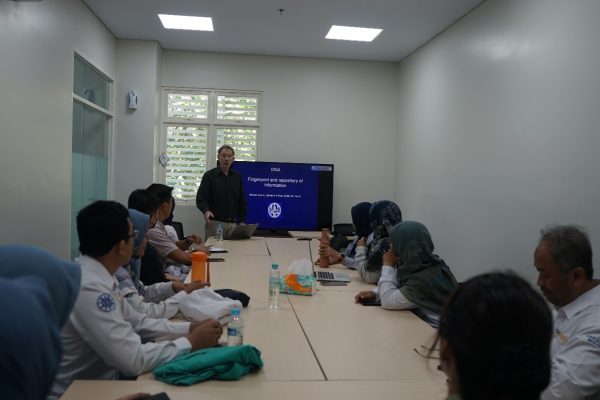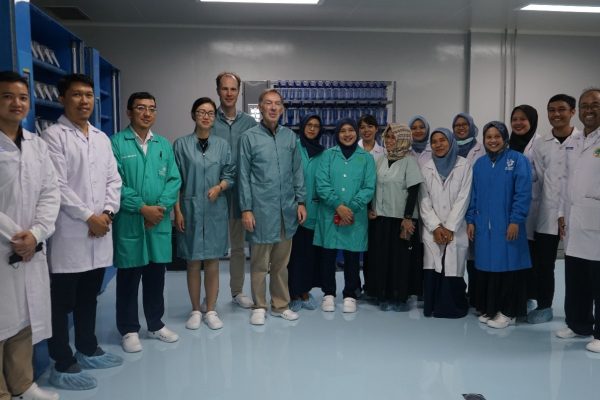Yogyakarta, 4 and 5 March 2024 – As part of collaboration in developing Integrated Laboratories and Research of Zebrafish, Universitas Gadjah Mada, especially the Faculty of Biology, Faculty of Pharmacy, and Faculty of Medicine, Nursing and Public Health, held a workshop in collaboration with Faculty of Science, Universiteit Leiden, the Netherlands. The workshop was guided by Prof. Dr. Herman Spaink as Professor of Cell and Molecular Biology, and Prof. Dr. Erik Danen as Dean of Graduate School of Science and Professor of Cancer Drug Target Discovery, Universiteit Leiden. The workshop was also led by Dr. Jan de Sonneville, and Dr. Yi Ding from Life Science Method BV, the Netherlands who developed the robotic microinjection tool together with Universiteit Leiden. The workshop was attended by lecturers and researchers from the Faculty of Biology, Faculty of Pharmacy, Faculty of Medicine, Nursing and Public Health also the Graduate School of Universitas Gadjah Mada, and was held in the Zebrafish Research Laboratory, LPPT (Integrated Research Center Laboratory), UGM.
Prof. Herman started the workshop with a presentation about gene editing and manipulation using CRISPR-Cas, gene sequencing and Zebrafish development which is the focus of research on the development of animal models for studies related to gene function, pharmacology and the study of various diseases. On the occasion of this workshop, CRISPR-Cas injections will be carried out in particular Cas9 and Cas13d targeting TBXTA (no tail gene), and gene sequencing using oxford nanopore MinION.
Dr. Yi and Dr. Jan then guided the microinjection stages. Automated robot microinjection is a tool developed by the Company Life Science Method BV in collaboration with Leiden. Robotic microinjection has previously been researched and provides efficiency that is not much different from manual injection, but is more effective and shortens research time.
Prof. Erik also delivered a presentation at the workshop session regarding his research which focuses on the development of pharmacology and drug discovery using zebrafish as an animal model. He also uses robotic injection technology to inject tumor cells into the collagen gel that creates micro tumours to understand the mechanisms of cell migration and tumor metastasis.
Through this workshop, it is hoped that it can contribute to the development of research and education in Indonesia, in line with support for sustainable development goals (SDGs), especially support for inclusive education through sustainable partnerships (SDG 4 and SDG 17).

